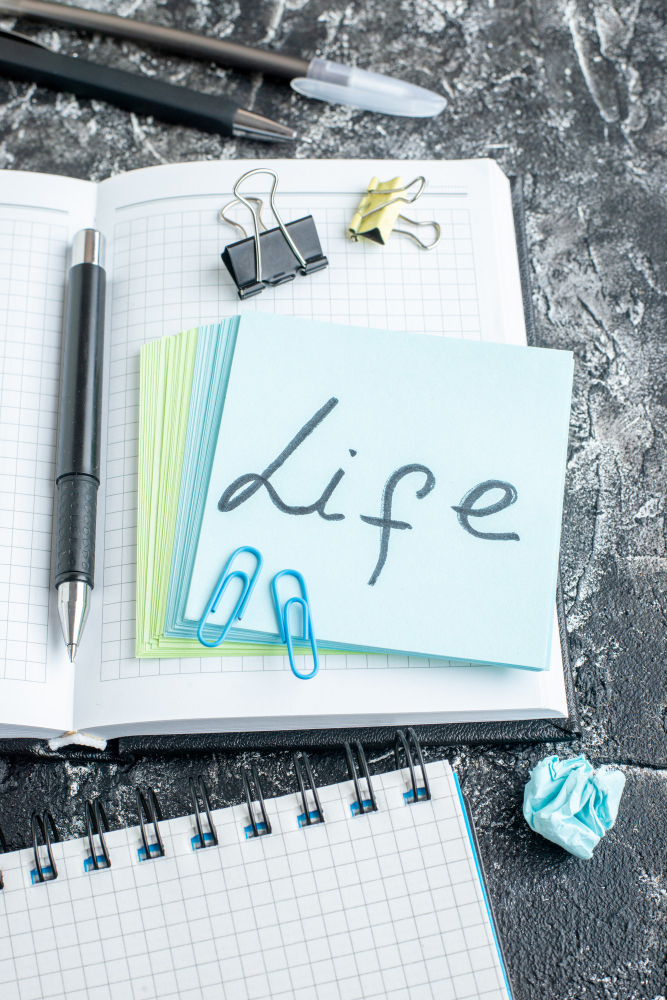How To Manage Your Life More Effectively?
We’ve all missed intended freeway exits or bypassed whole paragraphs of the newspaper due to daydreaming.
My thoughts typically get the best of me at bedtime: Shutting down my brain for sleep is sometimes challenging. This morning, after a restless night, I needed to regain some control over my mental fuzziness.
I decided to take an early stroll with the meditative goal of centering my attention on nature instead of the unproductive loop of stories still echoing in my head. Fortunately, I live walking distance from a canyon with public trails. A few minutes into my hike, I was able to get some anxiety relief by mentally relinquishing myself to my surroundings: What I observed was astonishing.
Lost in Thought
The battle between focus and foresight was everywhere: I noticed several cars parked in a clearly-marked temporary tow-away zone. Two people angrily yanked at leashed dogs checking “pee-mail” and one man pulled at his kindergarten-aged son who was curiously lingering at a crosswalk-button.
I pondered the inevitable consequences of what I saw: impounded cars, cowering animals, and a boy being raised with aggression more than affection. The people in charge during the unfolding of these circumstances were unintentionally victimizing themselves and others because they were too self-absorbed to notice the residual effects of their distracted thinking.
Other than the innocents (whose spontaneity and curiosity were uniformly reprimanded) everyone I witnessed was acting inappropriately because they were out-of-the-moment and lost-in-thought, trying to manage stress in unproductive and damaging ways. Even my own mind tugged at me to relinquish the moment, pass judgment, and spin my own story about what I was seeing.
Stinkin’ thinkin’
So why do we have such trouble using what’s actually unfolding around us to appropriately guide us through our days? We tend to conjure nightmarish scenarios, and then react out of what we’ve created as if it’s real, not imagined.
The answer to our struggles is far simpler than our minds would allow us to believe. Just as monsters lose their steely grips over us once we wake to realize they were mere players in our nightmares, the way toward living appropriately is through a similar corrective awareness: Wake up!
Let Nature take its course
Our bodies and minds are geared toward health and happiness: Our hearts beat without our conscious direction and our wounds naturally clot even without intervention. In like kind, we have a natural tendency toward emotional balance. The simplest and most effective way to achieve a blissful state is to understand that our lives will most likely right themselves if we relinquish control and work with, not against, our unfolding circumstances.
Thoughts make great Servants but terrible Masters
I’m not against cognition: thinking can propel us toward purposefulness. What is worrisome is the unchecked rampage that occurs when fulfillment becomes the subject of our searching. Much like agitated, fenced-in dogs digging for freedom, we create havoc in our lives when we hunt for happiness. Ironically, we most often are the ones who have constructed the fences in our way and placed wellbeing somewhere on the other side of these barriers.
“Humility is not thinking less of yourself, it’s thinking of yourself less” – Sid Banks
We become lonely, angry, and depressed when we assign ourselves the role of chief protagonist in self-created dramas. Decide to break-free from managing your life with brain-based perceptions and strategies: Wake up and let the reality of your surroundings right these errors of thinking.
Trust the natural order of things. Your system is designed to take care of your emotional hygiene – stop getting in your way. Understanding that you’re an organism that knows how to heal helps you get on with the purposeful work of living without the self-conscious proving and defending that can cloud the reality and keep you from realizing how powerful you already are.
The key is so simple: When we acknowledge that we are the thinkers and not the thinking, we open ourselves to participate in life with a giddy abandon that our self-consciousness could never allow.

